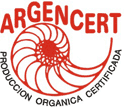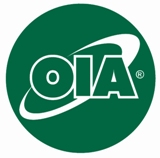European and national policy-makers and the organic community
23.05.2019
On 20-21 June, European and national policy-makers and the organic community will gather in Bucharest, Romania, for the European Organic Congress 2019. The theme of this year’s edition is "Innovation and technology: how organic improves, inspires & delivers".
On 20 June, we will talk about improving agricultural policies. The first part of the day will focus on a policy crucial for all organic farmers in Europe: the Common Agricultural Policy (CAP).
Petre Daea, Minister of Agriculture and Rural Development of Romania and I will welcome you. After our welcome, we will be joined on stage by policy-makers and representatives of civil society. Pierre Bascou, Director Sustainability and Income Support at the European Commission’s Directorate General for Agriculture and Rural Development and Aard Mulders, Senior Advisor at the Ministry of Agriculture, Nature and Food Quality of The Netherlands will join Minister Daea as key policy-makers. Luc Bas, Director of the International Union for Conservation of Nature (IUCN), Joachim Rukwied, President of the Committee of Professional Agricultural Organisations (COPA), Tiberiu Cazacioc, Member of Expert Group on CAP at Slow Food and Aina Calafat of the Spanish Society of Organic Agriculture (SEAE) will represent civil society.
Our panel will address specific questions like, does the CAP’s new Green Architecture work for the benefit of farmers, consumers and rural communities? How can organic farmers contribute towards CAP objectives under the policy’s New Delivery Model? Can Europe do more with less budget to support its farmers and what can be done about it? We will continue the congress with a plenary on a new European organic action plan for 2020-2027, and sessions on the secondary legislation following the organic regulation.
On day two of the conference we will shift our focus to innovation and technology. At IFOAM EU we have been working on a scoping paper on emerging technologies. We identified technologies that are the most relevant for and their impacts on the organic sector, such as robotics, drones, internet of things (IoT), artificial intelligence, blockchain and gamification. Our paper also investigates trends that have developed as a result of the increased presence of technologies in the agricultural sector. It seems that many technologies are not affordable nor particularly useful for small and medium size farms. They seem to be mostly developed for large scale, capital-rich farms by using a top down approach.?We invite you to join us at the European Organic Congress 2019(link is external)?to discuss these first findings in-depth. With your input we will further corroborate this paper.
I’d like to invite you to join us and explore what organic can gain by using emerging technologies and improvements beyond organic.?Read all about the interactive session and the workshops we will have on the European Organic Congress’ website(link is external).
Moreover, I’d like to thank Bio Romania and the Romanian Ministry of Agriculture and Rural Development for helping us organise the Congress, and our sponsors and media partners to help make it possible!
Hope to see you there,
Jan Plagge
IFOAM EU Group
https://www.ifoam-eu.org/en/news/2019/05/23/welcome-note-may-2019
















